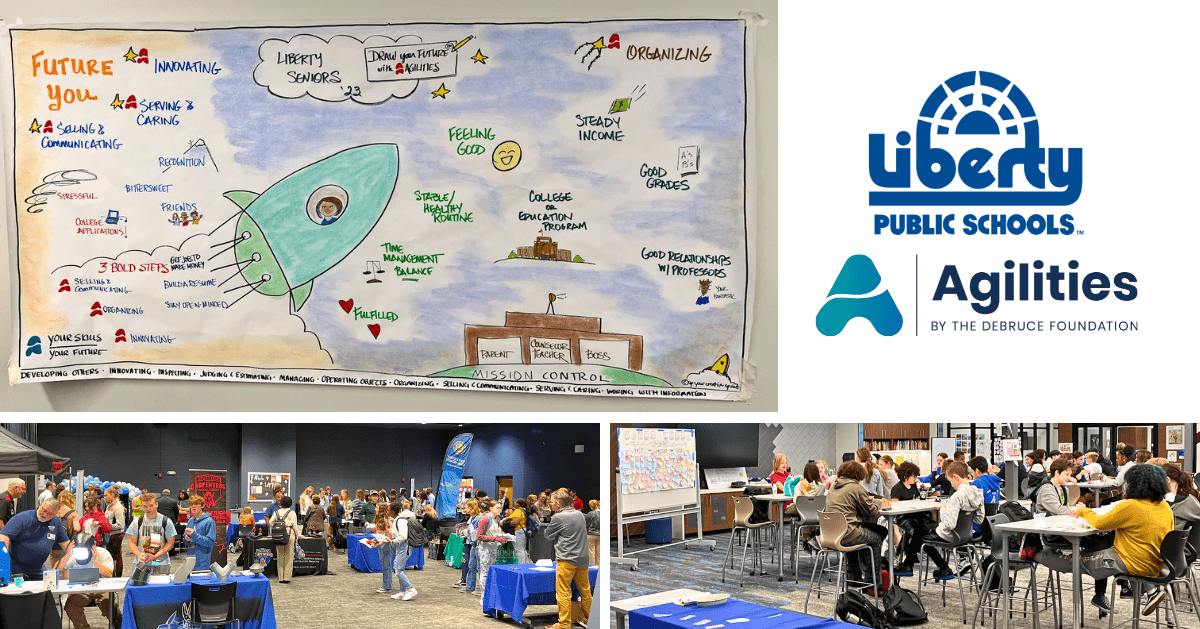Link copied to clipboard
Kansas City, Mo. — A new study captures the voices of adult learners and highlights ways higher education institutions can help them navigate unique challenges and provide needed support now and in the future.
Between August and October 2020, UMKC’s Urban Education Research Center (UERC) and The Council for Adult and Experiential Learning (CAEL) conducted 18 focus groups with faculty, administrators, and adult learners from 16 institutions of the Kansas City Scholars Postsecondary Network. The study, made possible with support from The DeBruce Foundation, included 82 faculty, staff, and administrators, as well as 61 adult learners.
This study was conducted to address two research questions: How has COVID-19 specifically affected adult learners? And, how can higher education institutions address the needs of adult learners during this unique time?
After analyzing the data, the research team included in the report four key recommendations with actionable steps for implementation:
- Establish faculty development and technological training for faculty, staff, and adult learners.
- Make timely and consistent decisions about course delivery and fees.
- Establish clear communication paths and ensure that communication addresses the target audience.
- Be mindful of mental health and stress levels of faculty, staff, and adult learners.
These key recommendations, drawn from focus groups during a pandemic, offer institutional leaders across the country not only immediate guidance but also will help postsecondary institutions improve future practices long after the COVID-19 crisis subsides. The full practice report, including 13 actionable steps to implement the recommendations, and a fact sheet summary are available HERE.
“Higher education is a way for many adults to expand their education-to-career pathways,” said Robin Smith, Senior Director at The DeBruce Foundation. “By understanding what unique challenges exist for adult learners, particularly during the pandemic, we can help identify solutions to remove barriers.”
“For adult learners, COVID-19 has been another life obstacle in a myriad of other challenges they regularly face and overcome,” noted Dr. Scott Campbell, Vice President, Partnership Development, CAEL. “We hope the recommendations from this research are helpful and can be put into practice to lighten the burden for adult learners and best position them for future success.”
“While these recommendations were developed during a pandemic, they will improve institutional practices and service to adult learners in any environment,” said Dr. Royce Ann Collins, Associate Professor, K-State, Consultant – Lead Researcher, UERC.
Dr. Beth Tankersley-Bankhead, President and CEO of KC Scholars, shared that “learning about how to best support adult learners, who are juggling so many things while completing a degree, serves as a helpful resource. To now have practical ‘lessons learned’ focused on supporting adult learners during the pandemic – and lessons provided by adult learners who are living the experience – takes these findings to the next level. Adult learners, campuses supporting adults enrolled on their campuses, and programs focused on supporting adults will find helpful advice in this report.”
“Adult learners had different needs than traditional students during the pandemic. We were able to provide adults with laptops for maximum participation in distance learning,” said Lisa Stoothoff, Vice President of Academic and Student Affairs/Dean of College, Donnelly College.
###
About The DeBruce Foundation
The DeBruce Foundation is a national foundation whose mission is to expand pathways to economic growth and opportunity. The Foundation is committed to helping individuals unlock their potential and find career pathways. By developing solutions such as the Agile Work Profiler, we change how people pursue careers. By partnering strategically, we increase experiences and exposure to widen career opportunities, starting with youth and working across the lifespan. Learn more at www.DeBruce.org.
About the Urban Education Research Center at UMKC
The Urban Education Research Center (UERC) is a research arm of the University of Missouri-Kansas City School of Education (SOE). The Center works collaboratively within the SOE, across the university and in conjunction with local partners and communities. Collaborators and partners include education leaders, educators, researchers, community leaders, advocacy groups and service organizations throughout the Kansas City metro area. The mission of the UERC is to create reliable, usable knowledge about education in urban areas with the goal of promoting excellent schooling and improving the lives, opportunities, and communities of urban residents in the Greater Kansas City community and the nation. The center accomplishes this mission through collaborative, data rich approaches including technical assistance and consultation and rigorous research using a range of methodological tools. https://info.umkc.edu/uerc/
About CAEL
Recognizing that adult learners are the backbone of the U.S. economy, CAEL helps forge a clear, viable connection between education and career success, providing solutions that promote sustainable and equitable economic growth. CAEL opens doors to opportunity in collaboration with workforce and economic developers; postsecondary educators; employers and industry groups; and foundations and other mission-aligned organizations. By engaging with these stakeholders, we foster a culture of innovative, lifelong learning that helps individuals and their communities thrive. Established in 1974, CAEL, a Strada Education Network affiliate, is a nonprofit 501(c)(3) membership organization. Visit cael.org to learn more.
About KC Scholars
KC Scholars is a 501(c)(3) public charity, launched in 2016. The mission of KC Scholars is to increase postsecondary education attainment via multiple pathways by providing the means – through scholarships, financial incentives to promote college savings, and support services – for low- and modest-income students and returning adult learners to complete a postsecondary credit-bearing credential or degree. As a workforce pipeline program, KC Scholars connects its students to regional workforce exploration and opportunities from the moment they enter the program. KC Scholars aims for a 75% postsecondary completion rate and that at least 80% of graduates stay in the region to live and work. Achieving the mission will change lives, set in place a regional culture of postsecondary completion, provide equitable access to economic independence, and diversity (economically, racially/ethnically, and generationally) the region’s workforce pipeline and vitality. https://kcscholars.org/

